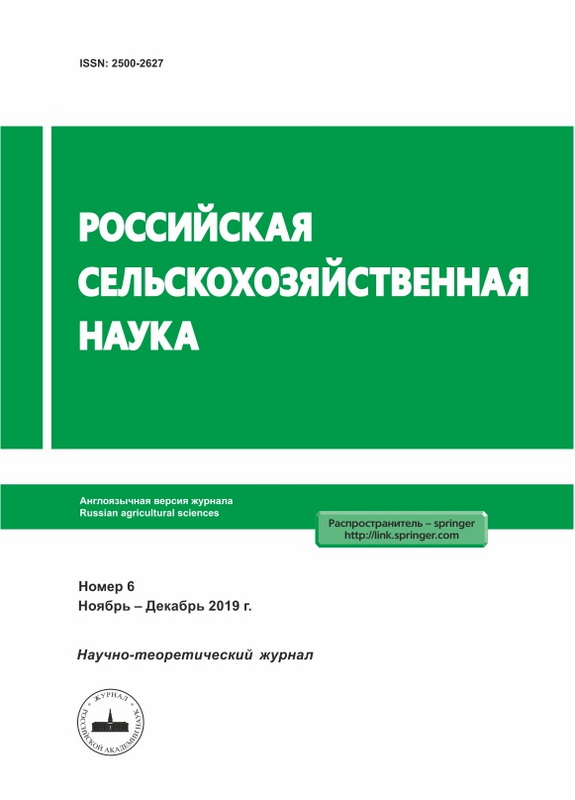Investigation of terms for application of surface active substances in the manufacture of crystalline glucose
- Autores: Khvorova L.S.1, Andreev N.R.1, Lukin N.D.1
-
Afiliações:
- All-Russian research Institute of starch products– the branch of Federal research center of food systems V.M. Gorbatov RAS
- Edição: Nº 6 (2019)
- Páginas: 61-64
- Seção: Storage and processing
- URL: https://journals.eco-vector.com/2500-2627/article/view/18678
- DOI: https://doi.org/10.31857/S2500-26272019661-64
- ID: 18678
Citar
Texto integral
Resumo
The successful outcome of the existing methods for the crystallization of glucose to greatly depends on the conditions of the stage of nucleation of crystals. The study was conducted with the aim to improve ways of nucleation during the crystallization of glucose. According to the theory of crystallization the rate of nucleation formation in the highest degree depends on the surface tension (ST) of solutions. Theoretical and practical interest is presented the role of ST in the process of crystallization of glucose. Studies have been carried out to determine the surface tension of glucose solutions depending on the concentration of dry substances (DS) and temperature. As a result of research, it has been determined that the ST of glucose solutions increases with an increase in the concentration of DS and a decrease in temperature. When testing aliphatic alcohols as a surface-active substances (surfactants), it was found that ST solutions decrease 2.5 times. The accelerating effect of aliphatic alcohols on the nucleation of crystals was expressed in a decrease in the induction period from 210 minutes to 120 minutes, respectively, in pure solutions and in the presence of surfactants. Tests of various types of seed crystals have revealed that large (> 200 μm) and small (<60 μm) hydrated glucose crystals moistened with alcohol are most effective for crystallizing anhydride glucose under polythermal conditions. The proposed method can significantly save the consumption of glucose for seed, improve the conditions of crystallization and improve the quality of glucose microbial purity.
Palavras-chave
Texto integral
Sobre autores
L. Khvorova
All-Russian research Institute of starch products– the branch of Federal research center of food systems V.M. Gorbatov RAS
Autor responsável pela correspondência
Email: vniik@arrisp.ru
Doctor of Technical Sciences
Rússia, Moskovskayz oblast, KraskovoN. Andreev
All-Russian research Institute of starch products– the branch of Federal research center of food systems V.M. Gorbatov RAS
Email: vniik@arrisp.ru
Corresponding member of RAS
Rússia, Moskovskayz oblast, KraskovoN. Lukin
All-Russian research Institute of starch products– the branch of Federal research center of food systems V.M. Gorbatov RAS
Email: vniik@arrisp.ru
Doctor of Technical Sciences
Rússia, Moskovskayz oblast, KraskovoBibliografia
- Gnielinski V., Mersman A., Thurner F. Verdampfung, Kristallisation, Trocknung. – Springer-Verlag, 2013. – 262 p.
- Андреев Н.Р., Хворова Л.С. Ангидридная глюкоза: технология производства и применение. // Фармация. – 2012. – .№ 3. – C.43-45.
- Гиббс Дж. В. Термодинамические работы.– М.-Л., ГИТТЛ,1950. –492 с.
- Фольмер М. Кинетика образования новой фазы. Пер. с нем. – М:Наука. Гл. ред. физ.-мат. лит., 1986.– 208 с.
- Булавин Л.А., Вэргун Л.Ю., Забашта Ю.Ф., Телиман Е.О. Крупномасштабные кластеры в водных растворах глюкозы.// Коллоидный журнал. –2015.– Т. 77.– № 3. – С. 1-6.
- Кульневич В.Г. Моносахариды – современные данные о структуре и стереохимии их молекул. // Соровский образовательный журнал. – 1996. – № 6. – С. 41-50.
- Кочетков Н.К., Бочков А.Ф., Дмитриев Б.А. и др. – Химия углеводов. – М: Химия, 1967. – 672 с.
- Parisi M., Rivallin M., Chianese A. Prediction of dextrose nucleation kinetics by the growth rate of crystallites.// Chem. Eng. Technol. – 2006. – 29 (2).–P. 265-270. DOI.10.1002/ceat 200500350.
- Волков В.А., Данюшин В.Г., Семенова Т.В. Лабораторные работы по коллоидной химии. Учебное пособие.– М: Изд. Московский государственный текстильный университет им. А.Н. Косыгина, 2000. – 222 с.
- M.L. Rasche, Jing Mo, R.D. Braatz, Effect of jet velocity on crystal size distribution from antisolvent and cooling crystallizations in a dual impinging jet mixer. // Chem. Eng. and Proc.–2015.–97.–P.242-247. doi: 10.1016/j.cep.2015.09.005.
- Gustavo A. Teiheira, Aline M. Brito, Marcos R. Alves, Jose Roberto D.Finser, Ricardo A. Malagoni. Studi of Supersaturation, Vibration Intesyti and Time of Crystallization Variables in the Vibrated Bed Lactose Monohydrate Production Process. // Chemical Eng. Transactions. – 2013. –32. –P. 2191-2196. doi: 10.3303/CET 1332366.
- Jiang M., Papageorgiou S., Waetzig G., Hardy A., Langston M., Braatz R. D. Indirect Ultrasonication in Continuous Slug-Flow Crystallization. // Crystal. Growth Des. – 2015. –15(5). –P. 2486-2492. DOI: 1M.S. 0.1021/acs cgd.5b00263.
- Sitaraman Krishnan, Andrew Klein,El-AasserM.S.,David Sudol. Effect of Surfactant Concentration on Particle Nucleation in Emulsion Polymerization of n -Butyl Methacrylate. // Macromolecules. – 2003.–36(9). – P. 3152-3159. doi: 10.1021/ma021120p.
- Bol’shagin E.Y., Roldughin E.Y. Kinetics of nucleation and growth of metal nanoparticles in the presence of surfactants. // Colloid Journal. – 2012. – V. 74. – № 6. – P.649–654. doi: 10.1134/S1061933X12060038.
- Лукин Н.Д., Ананских В.В., Лапидус Т.В., Хворова Л.С. Технологический контроль производства сахаристых крахмалопродуктов. Методическое пособие. – М.:Россельхозакадемия, 2007. –261 c.
Arquivos suplementares









